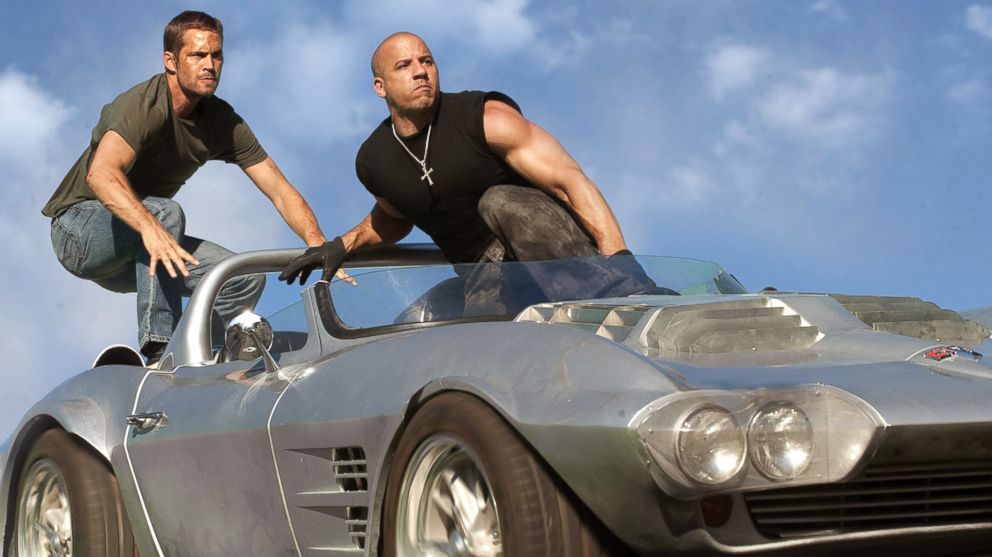Racing
The Fast And The Furious series is an odd one. Not based on any superhero or big-name property, it started in 2001 as a mid-budget actioner about an undercover cop (Paul Walker) infiltrating the world of street racing headed by an ex-convict (Vin Diesel). It was a surprise hit leading to two sequels with diminishing returns. By the third film, made without the original stars, the series looked in trouble.
It was rebooted with Fast & Furious in 2009, bringing back Diesel and Walker and making the most money yet. Since then, there's been a new F&F every two years, each with a bigger budget, each a bigger hit. And though some characters have died along the way, there got to be a regular cast of sorts, featuring Walker, Diesel, Michelle Rodriguez, Ludacris, Tyrese Gibson, Jordana Brewster and Dwayne Johnson.
The latest, Furious 7, had an astonishing opening, making almost $144 million domestic on the first weekend. It will be the biggest hit of the series by far. Part of the fascination is to see how the filmmakers dealt with the loss of lead Paul Walker, who died in a 2013 car crash before completing the shoot.
What may be most interesting is how the films changed. What started as an expose of an illegal underground scene has long ago left the real world, morphing into the tale of a close-knit crew of various types who travel around the world using their superhuman physical and technical skills to defeat ultra villains. The oddest thing, in a way, is not the absurdly enjoyable set pieces, but how important the emotional core has become. The central group loves each other--calls each other family (not unlike another popular franchise, The Walking Dead)--and are only pulled into these adventures when some foe tries to destroy their peace.
Some have pointed to the diversity of the cast to explain its success, and there's something to that, but it's got to be something more. Anyone can cast one from this ethnicity, one from that, and so on--and, in fact, this isn't uncommon in ensembles these days. But I would hope the audience is more attracted to story and character than it is to racial solidarity. It would be sad if the film's "diversity" matters because each group that sees the film does so in solidarity with their own people.



0 Comments:
Post a Comment
<< Home